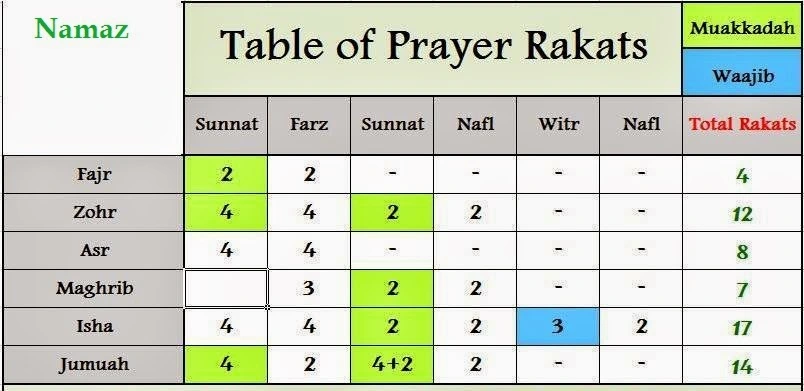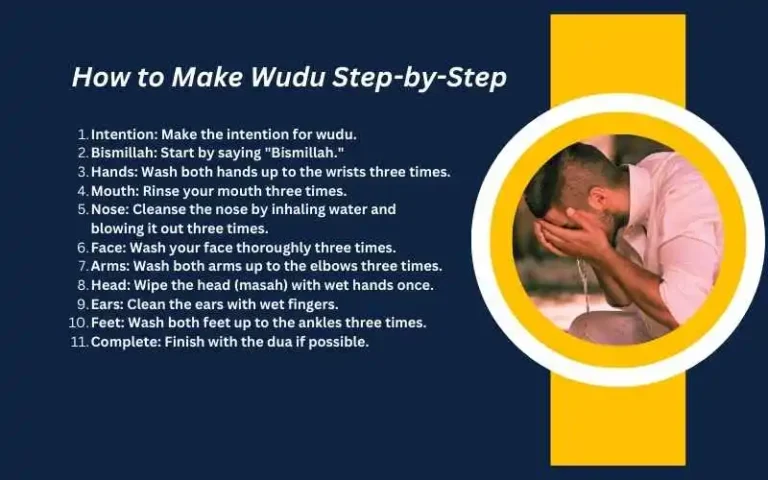Today, we discuss the fourth prayer, Asr prayer,after Dhuhr Salah, on our platform (MY QURAN TUTOR), which is also very important, as the other prayers hold a special place in Islam. The Asr prayer time also started at the busiest part of the day. It holds third place among the other five daily prayers and gives time to return to Allah, revive the soul, and strengthen self-control. Performing this prayer creates balance between routine duties and spiritual needs.
It is prayed between midday and evening and helps a person stay steady while moving from work to the later part of the day. Unlike the calm of Fajr or the end of Isha, this prayer reminds you to keep worship regular even when life is busy. It brings faith back to the heart during the busiest hours.
In this guide, we will talk about Asr prayer. You will discover how many rakats are in this prayer, the detailed Asr prayer rakat breakdown, its exact timing, virtues, the proper methods, and the importance of Sunnah and consistency. We’ll also share common mistakes, rules for making up missed prayers, FAQs, and helpful tips to build a stronger daily routine.
What Is Asr Prayer?
Asr is the third prayer in Islam, which is performed daily by every Muslim, and the time is between midday and evening. It acts as a spiritual bridge in the day, reminding Muslims to stay close to Allah during their normal routine. It helps keep faith at the center of life, even in the busiest hours.
This prayer is important, and it gives a chance to pause and refresh the heart. It lets worshippers step away from daily worries, clear their intentions, and gain strength from Allah. In places, it may be called Salat al Asr or other local names, but its purpose is the same everywhere. It reminds believers to stay devoted while managing daily duties and to keep the heart connected to worship.
When Is Asr Prayer?
The afternoon prayer has a set time that starts after the sun passes its highest point and the shadow of an object becomes longer than the object itself. This time lasts until just before sunset, which begins the evening prayer. Knowing this timing is important because offering salah within its set period is a key part of having it accepted.
Different Islamic traditions have small differences about the exact start time. The Hanafi tradition says it begins when an object’s shadow is twice its length, while most others say it starts when the shadow is equal in length. Still, all agree that delaying the prayer without reason is discouraged. Praying early, as soon as the time begins, is more rewarding and shows eagerness to follow Allah’s command.
Asr Prayer Rakat Structure
The afternoon prayer follows a specific pattern of rakats that highlights both the obligatory and optional units. While the heart of this Salah stays the same across all Islamic traditions, there are slight differences in the recommended Sunnah and Nafl prayers that accompany it. Understanding the full structure helps you perform the prayer correctly and with deeper focus.

- Four Sunnah Rakats (Optional): These are advised before the main units. While not required, they bring extra blessings and rewards.
- Four Fard Rakats (Required): This is the necessary part of the afternoon prayer and must be performed for the prayer to count.
Method of Performing Asr Prayer
It is important to perform every prayer correctly, as it helps to maintain both discipline and spiritual connection. Understanding the step-by-step process also clears common confusion about how many rakats in Asr prayer and where Sunnah or Nafl units may fit in.
- Step 1: Intention (Niyyah): Start by making an intention in your heart to perform the afternoon prayer. This internal commitment is important for focus and devotion.
- Step 2: Opening Takbir: Raise both of your hands to your ears and say “Allahu Akbar” to start the prayer.
- Step 3: Recitation: Begins the Namaz with Surah Al Fatihah, the first two rakats followed by another short Surah or verses from the Quran in the first two rakats.
- Step 4: Bowing (Ruku): Bow forward, place your hands on your knees, and say Subhana Rabbiyal Adheem three times.
- Step 5: Prostration (Sujood): Lower your forehead, nose, knees, and toes to the ground while praising Allah with Subhana Rabbiyal A‘la.
- Step 6: Sitting & Second Prostration: Sit briefly between two sujoods, then perform the second prostration before standing again.
- Step 7: Tashahhud (Sitting after Rakats): After the second rakat, sit and recite At-Tahiyyat. In the fourth rakat, include Durood and prayers before finishing.
- Step 8: Taslim (Ending): Turn the head right and left, saying Assalamu Alaikum wa Rahmatullah to conclude the prayer.
In total, the structure of Asr prayer rakat is four Sunnah and four Fard rakats. Sunnah performed before the fard. You can recite common surahs like Al Ikhlas, Al Falaq, and An Nas, and personal duas for guidance and forgiveness can be included after taslim.
Virtues & Benefits
The afternoon prayer carries immense value in Islam, both spiritually and practically. It serves as a reminder in the middle of the day that faith remains central, even amidst work and worldly distractions. Through Qur’an verses and Hadith, we learn how this salah strengthens discipline, protects from negligence, and offers special rewards for those who guard it consistently.
Qur’an and Hadith References
Allah praises those who protect their daily prayers, especially the one in the middle of the day, as a sign of true faith. A well-known Hadith warns that skipping this prayer can reduce blessings in one’s actions, while offering it regularly brings Allah’s mercy.
Spiritual Renewal
Stopping for worship in the afternoon refreshes the heart and soul, breaking the cycle of stress and reminding believers that success comes with Allah’s help.
Protection & Discipline
This prayer acts as a shield, guarding against laziness and heedlessness. Its timing trains a Muslim to stay disciplined even when busy.
Rewards of Consistency
The Prophet ﷺ taught that those who keep this prayer regular receive special blessings in their work and family life. But leaving it out brings a spiritual loss that nothing else can make up for.
Common Mistakes & Correcting Them
Like any prayer, the afternoon salah can lose its meaning if not done carefully. People often make small mistakes that reduce their benefit. By finding and correcting these mistakes, the prayer becomes more complete and more rewarding.
- Rushing Through the Prayer: Many people move too quickly between rakats and positions, which takes away the peace and meditation.
- Skipping Sunnah and Nafl Units: These extra rakats are not required, but skipping them means losing extra blessings. Praying them makes the prayer more complete and rewarding.
- Lack of Concentration: Getting lost in everyday thoughts can reduce the quality of salah. Praying in a quiet place and thinking about Allah’s greatness helps you stay focused.
- Not Understanding the Words: Reciting verses without knowing their meaning reduces connection with the prayer. Learning simple translations of Surah Al-Fatiha and short surahs builds mindfulness.
Qaza & Making Up Missed Asr
Sometimes, because of unavoidable reasons, a person might miss the afternoon prayer. Islam teaches how to make it up, but also reminds us not to delay prayers without a valid reason. Learning the rules of qaza helps you stay consistent in worship even when life is busy.
- Making Up After the Time Ends: If you missed your prayer, it can be performed as qaza with the same four fard rakats. This keeps you responsible and prevents neglect.
- Combining with Another Prayer: As compared to Maghrib and Isha, the afternoon prayer is usually not combined with other prayers. Scholars advise offering it on its own, even if it’s late, to keep its importance.
- Delaying Until Just Before Maghrib: Some people purposely wait until the last moment to pray. While it is still valid, it is not encouraged. The Prophet ﷺ advised praying this salah earlier within its time for a greater reward.
FAQs
How many rakats are in Asr prayer?
The obligatory part of this salah is four rakats. Some scholars also recommend praying four Sunnah prayers before, though they are not compulsory.
Can Asr be prayed late if missed?
If it’s missed within its time, it should be offered as qaza later with the same structure. However, it’s best to pray it on time for full reward.
Can I pray Sunnah plus Fard together?
The Sunnah and Fard units are prayed separately. In Asr prayer, Muslims can pray the Sunnah rakats first and the Fard rakats after them.
What if someone doesn’t know Arabic—can they recite parts in translation?
Remember to recite the required Surahs like Surah Al-Fatiha in Arabic. However, a person can learn step by step and use short, authentic phrases until they know the correct words.
Final Verdict
The afternoon salah is more than a daily duty. It brings balance, discipline, and blessings to a Muslim’s life. By praying the rakats properly, avoiding common mistakes, and offering them on time, a believer strengthens both faith and daily routine. Staying regular with this prayer refreshes the soul and keeps the heart close to Allah, even during the busiest part of the day.
If you need assistance from My Quran Tutor, you can contact us anytime, from anywhere in the world. Whether you want to learn the Quran online or Islamic Studies, our expert male tutors and female Quran teachers are here to guide you.








